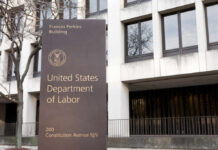
Harvard University has reached a confidential settlement with Orthodox Jewish student Alexander Kestenbaum, ending a high-profile Title VI lawsuit over campus antisemitism.
At a Glance
- The anti-discrimination lawsuit alleged Harvard ignored antisemitic behavior in violation of Title VI
- Alexander Kestenbaum, an Orthodox Jewish student, brought the suit after months of unresolved complaints
- Harvard faced potential loss of nearly $3 billion in federal funding amid growing scrutiny
- The university has adopted new antisemitism definitions and launched civil dialogue programs
- The case was dismissed with prejudice, preventing refiling of the same claims
Title VI Lawsuit Ends in Settlement
After a prolonged 16-month legal battle, Harvard University and Orthodox Jewish student Alexander “Shabbos” Kestenbaum have reached a confidential settlement that ends a lawsuit accusing the Ivy League institution of tolerating antisemitic conduct. Filed in January 2024, the lawsuit cited Harvard’s alleged failure to curb antisemitism under Title VI of the Civil Rights Act, which prohibits discrimination based on national origin in federally funded programs.
Watch a report: Harvard Settles Lawsuit with Jewish Student.
The complaint demanded sweeping institutional changes, including disciplinary action against students and staff, and an overhaul of Harvard’s anti-discrimination policies. Harvard initially resisted, but mounting political and financial pressure—including threats of federal funding cuts exceeding $2.8 billion—forced the university to act. However, the final settlement dismisses the suit “with prejudice”, preventing future legal action on the same claims.
Harvard’s Shift on Antisemitism
The lawsuit intensified national focus on antisemitism in higher education. In response, Harvard adopted the International Holocaust Remembrance Alliance’s definition of antisemitism and committed to stronger policies. A university report also acknowledged widespread antisemitic and anti-Israel bias, prompting new internal programs aimed at educating faculty and students on civil discourse and inclusion.
“Harvard and Mr. Kestenbaum acknowledge each other’s steadfast and important efforts to combat antisemitism at Harvard and elsewhere,” said spokesperson Jason A. Newton, signaling a more conciliatory stance than earlier statements.
Despite these reforms, university leadership under President Alan Garber continues to face criticism for delayed responses and perceived resistance to federal oversight. Some groups have called for greater transparency about how antisemitic incidents are investigated and punished.
Legal Closure, Lingering Debate
Kestenbaum, a graduate of Harvard Divinity School, had previously expressed frustration with the university’s handling of other settlements, ultimately prompting an amended complaint and this separate resolution. Though the terms remain private, the agreement concludes one of the most significant antisemitism-related cases in U.S. higher education.
As Harvard rebuilds its public image, the case serves as a cautionary tale on the cost—both reputational and financial—of failing to act swiftly against discrimination. The settlement may close one chapter, but it has opened a broader conversation about free speech, bias, and accountability in American academia.


























